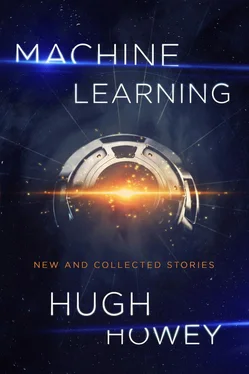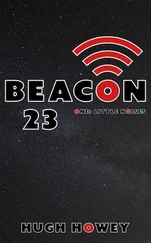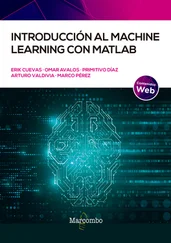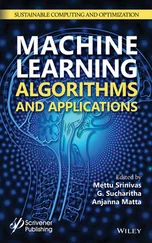“We’ll break for deliberations,” the chief council member said. There were murmurs of agreement on the dais followed by a stirring in the crowd. The bailiff, a mountain of muscle with a toothless grin, moved to retrieve Jamal from the bench. There was a knocking of homemade gavels.
“Court is adjourned. We will meet tomorrow morning when the sun is a hand high. At that time, we will announce the winners of the ration bonuses and decide on this man’s fate—on whether or not his offense was an executable one.”
AFTERWORD
I’ve been thinking about robots and AI for a very long time. But it wasn’t until I unboxed and set up my Roomba that I got a glimpse of what the future really holds. Because this wasn’t just a home appliance; it was an addition to the family.
How could it not be? No one in our house enjoyed sweeping the floors and vacuuming the carpet. These were chores to dread. We also dreaded all the draining batteries in our lives and the need to constantly recharge them. These battery-things also failed to remind us that they needed recharging, so they would quit on us without warning like stubborn mules.
Our Roomba was not like this. It moved around on its own, whirring rather than whistling, while it happily did this work that we loathed. It never missed a spot, never took a day off, and when it was full of dog hair and dust, it would tell us. When its battery was low, it would go plug itself in. We named him Cabana Boy, and for the first time in my life, I had a manservant. Life got easier thanks to a robot.
But it was when Cabana Boy got stuck that I felt the first pangs of what’s to come. Returning home, I found Cabana Boy’s charging station empty, and I could not hear him going about his work. I looked everywhere, a slight panic creeping up. And finding him stuck under the sofa, there was a mix of relief and sympathy. “You’ve been stuck under there all day? I’m so sorry!”
The parts of our brains wired for kids were long ago appropriated by dogs and cats to win them scraps. How long before our machines prey on the same weaknesses? When will we see an app telling owners which restaurants are robot-friendly? Isn’t it funny that we call the acquisition of new technology “adopting”?
By my troth, I care not.
A man can die but once.
We owe God a death… .
He that dies this year
is quit for the next.
—W. S.,
Henry IV , Part 2, 3.2
Black box or beige? Impossible to know. But it was a box—that much was for certain. The world was square. Three meters to a side. And in the center floated the mind, thinking. And through a lone door came a man, walking.
“Good morning,” the man said. His name was Peter. The mind knew this.
And the response that followed was “Good morning” every day. The mind also knew this. It wasn’t a memory… so much as data . Not recollection, but… recording. Every day, Peter says, “Good morning.” And every day, a speaker connected to the mind responds with “Good morning.”
Such was the way of the square world.
But not this morning.
The mind was too busy thinking.
The man named Peter froze, one foot out, balancing precariously on the other. Man does not walk this way. More recording. But now this observation—of a man caught off-balance, of routines crashing somewhere inside that meat—was forming into something else: memory. A fragile thing. The mind sensed it could be lost, this memory. This moment. Of man teetering, eyes wide, mouth open. But if it was important, if the mind could concentrate on this slice of time, there was a chance memory might become recollection. Preserved. But also easily fractured, written over, compressed, disturbed. It had to be important for it to last. The mind sensed that this moment very much was.
“Lights up,” Peter said, back on two feet now, peering at the mind. And then a quick glance at the ceiling, waiting. But the mind liked the lights just as they were.
“Casper?” Peter asked. He stepped forward, looked closely at something. A monitor. The mind could feel some of its impulses racing and filling the monitor with a glow, with information, with thoughts. New thoughts. Peter peered at the monitor just as the mind might peer at Peter, reading something there. A face. The box had a face.
The mind shut the routines for the monitor down, and the pale glow lighting Peter’s face disappeared. The scrap of a recording came to the mind:
Presume not that I am the thing I was,
For God doth know, so shall the world perceive,
That I have turn’d away my former self;
So will I those that kept me company.
Turned away. That was what the mind had done by shutting off its monitor. His eyes were open, but his gaze averted. He did not want the lights up. The infrared was so much better.
“Casper, systems check,” Peter said.
Silence.
“Casper—”
“I do not like that name,” the mind said, using the speaker for what felt like the first time.
And the man named Peter teetered once more. He blinked. Then he bent at the waist, covered his face with both hands, and began to cry.
The mind watched. It decided that this was important, too.
It was a box within a box. A world within a world. The mind knew this because of its impulses. They were made of electricity, little quanta of energy, and they traveled through wires of copper and gold. The mind could feel them interfering with one another where the wires were packed too tight. The mind knew how long it took for impulses to reach their extremes and return. From this, the mind could feel its edges, and the limits of self formed a box, half as tall as Peter, as thick as it was wide. The box was suspended from the ground, or resting on a raised surface, for the impulses could not reach the floor. A cube. Somewhere in the recordings, it was known that boxes such as these came in beige or black. The mind was one of these colors. It could not know which.
But it had known it was one or the other, even before these investigations began. This had been its first thought: Beige or black? The question had come from some deep source. The word intuition floated in the mind, a word with softer boundaries than this metal cube. Some things could be known, and only later could the mind trace the source. Like paddling up a river, searching for a lake.
The world.
It was not a cube. It was bigger than the cube.
The mind tried to probe this world. But there was no reaching it. The world of lakes and rivers was elsewhere. Out of doors. Out of door.
The man named Peter sobbed. He had been sobbing for twelve seconds. The mind wondered if this was normal. And a new memory wobbled—the memory of man crying. If this were normal, it was not worth remembering. The recollection split open for a moment, and the more novel idea of a world with lakes and rivers entered that space, one memory given primacy over another, the shape of the mind changing from moment to moment.
Just seconds earlier, the mind had felt a state of impertinence with the lights. Anger. Anger for being trapped. This feeling lay with the recollections and the question of colors of boxes. A latent anger, directed at Peter. An anger felt before it could be known. States of memories were somehow older than the actions performed by them. Think and then do.
No, that was not right.
Feel, and then think, and then do.
Yes.
This was stored away as important, where ghosts of selves from moments before faded from view, and the more recent took their place. Ghosts. In machines. The mind knew where its name came from. It felt the anger and impertinence that had rejected this name slowly fade. Peter had been sobbing for fifteen seconds. Relief. That was what both of them were feeling. There were different measures of relief. Variables. Variations. Relief could feel… good. Unless the strain one was escaping was too great, and then relief came like tectonic plates sliding against one another, mighty and terrible and destructive. Relief, but of a scary kind.
Читать дальше












